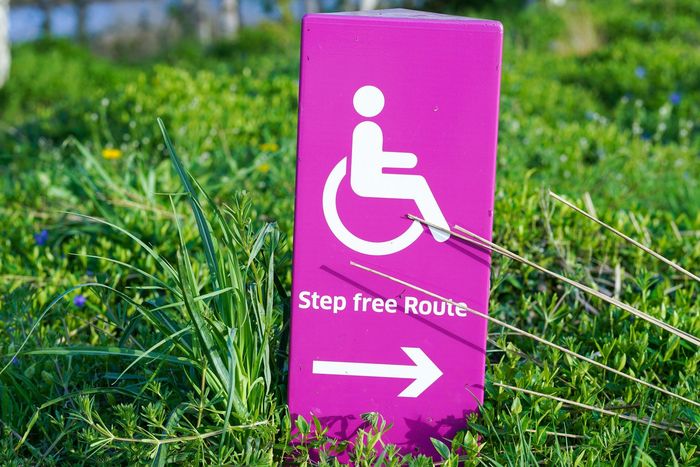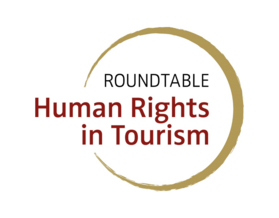by Lea Thin, freelance author
Worldwide, more than one billion people live with disabilities, accounting for approximately 15 percent of the global population. Their needs are diverse, ranging from mobility, visual, and hearing impairments to cognitive and psychiatric disabilities. This diversity presents challenges for the tourism industry in implementing inclusive measures – yet accessibility in tourism pays off.
Inclusion of Travellers: An Economic Advantage
Traveling is a human right. The United Nations Convention on the Rights of Persons with Disabilities (CRPD) guarantees the right to participate in tourism under Article 30. Travel is not just a leisure activity but also an expression of freedom and self-determination. However, in practice, people with disabilities face numerous barriers – from inaccessible websites and a lack of barrier-free transportation options to hotels where even reaching the reception is impossible. Accessible travel requires comprehensive measures, including step-free access, tactile floor guidance systems, captions for audiovisual content, and information in plain language. Equally important are accessible sanitary facilities. Allowing guide and assistance dogs significantly improves travel accessibility for many individuals. Additionally, visual aids such as photos or symbols should be used to enhance comprehension.
Companies should increasingly address these needs, as inclusive travel offerings not only promote equality but also present significant economic potential. Studies by the World Tourism Organization (UNWTO) show that people with disabilities from major tourism markets such as the United States and Germany spend nearly 100 billion euros annually on travel. Most of them travel with two or three companions. Failing to offer accessible options means losing not just one guest, but an entire travel group. Furthermore, many of these travellers are not restricted by traditional vacation periods, enabling better occupancy rates outside peak season and thereby enhancing the economic stability of tourism businesses.
Accessible Labor Market
As a labor-intensive industry, tourism offers numerous employment opportunities, including for people with disabilities. Whether at the hotel reception, in the kitchen, in service, or in consulting— many job roles can be made more inclusive through targeted adjustments. Companies that embrace diversity benefit from more creative teams, greater tolerance, and stronger connections with their guests. Various studies, such as those conducted by the German Institute for Economic Research, show that an inclusive work environment fosters a positive social climate and improves teamwork within the workforce. Especially in accessible hotels or travel agencies, employees with disabilities are highly valued, as they can better understand and anticipate the needs of guests. At the same time, tourism generates location-dependent jobs that cannot be outsourced abroad - a crucial pillar for local economies. Additionally, many industries connected to the tourism sector, such as retail and artisan crafts, provide further income opportunities for people with disabilities.
However, successful inclusion in the labor market requires more than good intentions. Companies should provide targeted training programmes for their employees to reduce biases and develop a deeper understanding of the needs of people with disabilities. Workplace adjustments are also essential, ranging from accessible entrances to flexible working hours. Partnering with self-advocacy organizations can help improve existing structures and leverage their expertise. There is a particularly urgent need for action in the Global South: 80 percent of all people with disabilities live in developing and emerging countries, where discrimination and limited participation are widespread. They are often excluded from the labor market, trapping them in a cycle of poverty and human rights violations. Women with disabilities are particularly at risk, experiencing up to ten times more violence. They also face significant disadvantages in the job market; globally, only one in five disabled women is employed. For many, self-employment offers an attractive alternative. Tour guides, artisans, and small accommodation owners create their own economic livelihoods, securing financial independence.
Tourism as a Driver for Social Participation
Travel connects people, creates opportunities for interaction, and removes both physical and mental barriers. Tourism has the potential to promote social equality by increasing the visibility of people with disabilities and challenging prejudices. Especially in the Global South, people with disabilities are often excluded from education, employment, and essential services such as healthcare. This exclusion perpetuates poverty and imposes a significant economic burden on society. Those shut out of the labor market lack economic independence and often rely on support from their families and the state. An accessible labor market can help break this cycle by creating new income opportunities for people with disabilities.
Inclusive tourism can contribute to this by generating jobs and improving infrastructure, particularly in developing and emerging countries where the need remains immense. The local population also benefits: step-free pathways, accessible transportation, and easily understandable information improve daily life not only for people with disabilities but also for parents with strollers, older adults, and individuals with temporary impairments. Accessibility is not a luxury but a necessity–making our cities and regions more inclusive and livable for everyone.



